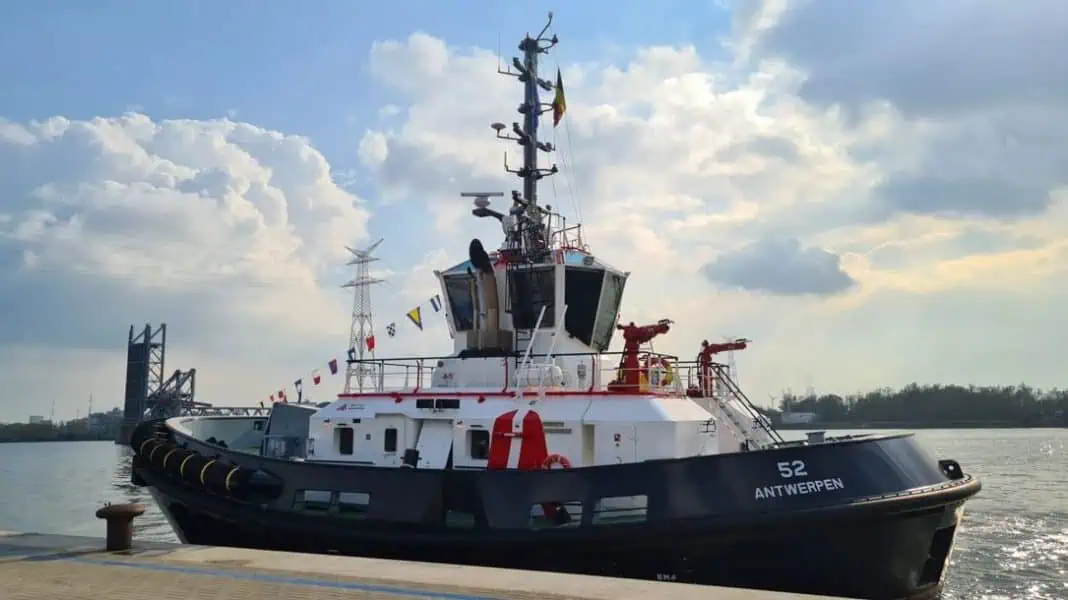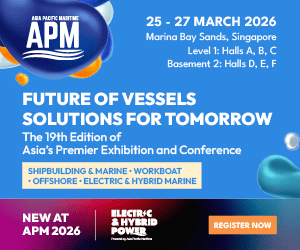Greening the fleet and making it more sustainable
Port of Antwerp inaugurated three new RSD tugs on 19 April 2021. This expansion forms part of the renewal and greening of the fleet, in which Port of Antwerp is focusing on the introduction of sustainable and energy-efficient vessels.
In 2020, 14,000 seagoing vessels and 57,000 inland navigation craft called at the port of Antwerp. To guide all those vessels safely and smoothly from the locks to their moorings and vice versa, Port of Antwerp carries out 19,000 towing operations behind the locks every year, both on the right and the left bank. In order to bring all those towage tasks to a successful conclusion, Port of Antwerp has 18 operational tugs and 250 colleagues on standby 24/7, 365 days of the year.
In September 2020, Port of Antwerp purchased its first RSD tug from Multraship NV and this was followed by the purchase of two additional vessels. RSD stands for Reversed Stern Drive and means that the tug was designed according to the double-bow principle. This allows it to be used dynamically as a front and rear tug. What is more, the tug is more energy-efficient thanks to its specific design and is equipped with a nitrogen oxide filter to comply with IMO Tier III regulations. The new tugs were designed by the shipbuilder Damen.
Intensive training
In order to prepare the crew and technical staff for the arrival of these new vessels, they received intensive training lasting several months. That training consisted of a nautical part concerning learning to sail with rudder propellers and a technical part concerning knowledge of ship systems on board, maintenance and troubleshooting. This intensive and sustainable training was internally driven and externally facilitated by Multraship NV and Damen.
Greening the fleet and making it more sustainable
Port of Antwerp manages a fleet of 32 vessels, consisting of tugs, dredgers and support vessels. This fleet is responsible for almost 85% of Port of Antwerp’s total CO2 emissions. In order to minimise that impact, a multi-year project to renew, green and optimise the fleet was set in motion. In addition to purchasing new tugs, the company is also looking at data in order to improve its processes. One of the ways it is doing this is by collaborating with partners such as Optiport, which developed a tool to optimise the planning of towage tasks, and Cognauship, which will work on the consumption of Port of Antwerp’s own tugs.
Jacques Vandermeiren, CEO Port of Antwerp: “Port of Antwerp aims to be a climate neutral port by 2050. In our role as operator we are investing in this energy transition. The purchase of these vessels is part of the renewal and greening of our fleet, in which we focus on sustainable and energy-efficient vessels.”
Rob Smeets, Chief Operations Officer Port of Antwerp: “Over the past few years, a lot has changed and a lot of hard work has gone into our operational department. The launch of Vessel Traffic Services (VTS), new tugboats, soon to be hybrid enforcement vessels, … These are all strong achievements that we have been able to realise thanks to the commitment and enthusiasm of all our colleagues.”
Port Alderman Annick De Ridder: “By expanding our fleet, we are continuing our efforts to ensure that our services are operational 100% of the time, while seeking to pave the way towards sustainable shipping. As the Port of Antwerp, we are setting a good example by taking a major step towards making our own tugs greener. In the near future, we will also experiment with tugs powered by renewable methanol and hydrogen.”













